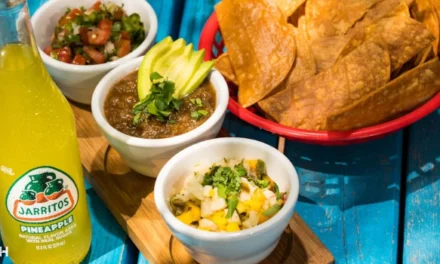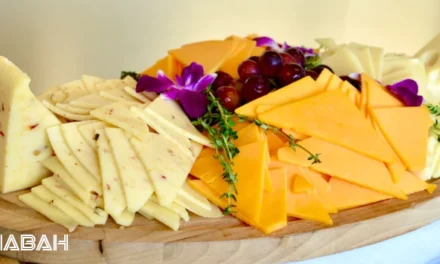As a Muslim consumer, I have often found myself questioning the halal status of certain foods, particularly when it comes to big corporate restaurants. In this article, I aim to shed light on the halal status of Mcdonalds new burger the Mcplant, debunking common myths and providing factual information to help fellow Muslims make informed dietary choices.
McDonald’s New Burger Divides Muslim Consumers
McDonald’s recently introduced a new plant-based burger called the McPlant in select markets globally. The McPlant patty is made from pea proteins, rice proteins, potatoes, and other plant-based ingredients. It is cooked separately from other McDonald’s burgers using dedicated utensils.
The launch of the McPlant has prompted questions from Muslim consumers about whether or not it is halal. Halal food adheres to Islamic dietary guidelines as described in the Quran. The criteria for halal certification includes:
- Permitted ingredients
- Cattle/lamb slaughtered according to zabiha guidelines
- Fish with scales
- Produce, grains, legumes
- Permissible oils
- Avoids prohibited ingredients
- Pork products
- Alcohol
- Meat from carnivorous animals
- Blood
- Safe preparation/handling
As a new menu item, the McPlant does not yet have halal certification from any recognized halal authorities. This has sparked debate on social media and forums as to whether or not Muslims can eat it.
According to McDonald’s UAE:
“The McPlant was created to deliver the iconic taste of a McDonald’s burger in a plant-based option. It is made with a juicy plant-based patty and vegan sandwich sauce.”
The main question is whether a vegetarian burger made without beef, pork or animal byproducts can be considered halal even without certification.
What Makes Food Halal?
For a food to be certified halal, it must comply with Islamic dietary regulations as stated in the Quran and hadiths. Here are the key criteria:
Permitted Ingredients
- Meat from halal slaughtered animals like cattle, lamb, goat, fish
- Produce, grains, legumes, nuts, seeds
- Dairy products like milk, yogurt, cheese
- Spices, flavorings, colors that are plant-based
Meat from cattle slaughtered according to Islamic guidelines is permissible, as is produce, legumes, nuts and plant matter.
Prohibited Ingredients
- Pork, pork by-products
- Meat from carnivorous animals
- Blood or blood by-products
- Alcohol
- Insects, reptiles
Any food containing pork, blood, alcohol or meat not slaughtered properly is considered haram forbidden.
Preparation
- Dedicated halal cooking utensils
- No cross-contamination from non-halal foods
- Proper sanitation protocols followed
Obtaining halal certification requires verification of permitted ingredients, avoidance of prohibited ingredients, and safe handling procedures.
Here is a draft of section 3 in markdown format:
Evaluating the McPlant Burger
To determine if the McPlant can be considered halal, we need to analyze its ingredients and preparation.
Ingredients
According to the McDonald’s website, the McPlant patty contains:
- Peas
- Rice
- Potatoes
- Plant-based oils
The vegan sandwich sauce includes:
- Tomatoes
- Onions
- Pickles
- Peppers
- Plant-based oils
The McPlant patty is made from plant proteins including peas, rice and potatoes. The vegan sauce contains only vegetable ingredients.
None of these ingredients seem to violate halal dietary restrictions.
Preparation
McDonald’s has confirmed that the McPlant is cooked separately from other burgers using dedicated grills and utensils.
McDonald’s uses separate grills and tools to cook plant-based items to prevent cross-contamination.
This helps avoid contact with any non-halal ingredients.
So in summary, the McPlant patty and sauce appear to meet halal standards based on current information. Whether this is sufficient for considering it halal is debated.
The Debate If Its Halal Or Haram
Despite the McPlant’s seemingly halal-friendly ingredients and preparation, its halal status is still debated among Muslims.
Arguments For McPlant Being Halal
Some arguments that support considering the McPlant halal:
-
It contains no animal products or byproducts prohibited in Islam.
The McPlant patty is 100% plant-based with no meat or dairy. This avoids haram ingredients.
-
McDonald’s uses separate cooking equipment. Per McDonald’s UAE:
The McPlant is cooked separately with dedicated grills and utensils, preventing cross-contamination.
-
Some interpret halal as “permissible by default” except what is explicitly prohibited. As vegetables are not prohibited, McPlant would be permissible.
Arguments Against McPlant Being Halal
Some counter-arguments challenging its halal status:
-
It lacks certification from a halal authority. As Your Right to Know states:
Official halal certification is still needed for assurance.
-
Trace ingredients like stabilizers or preservatives may be uncertified. Per IslamQA:
Minor ingredients can still invalidate halal status.
-
Cross-contamination risk still exists in production and packaging.
The debate continues on whether halal-by-ingredients is sufficient or if certification is mandatory.
Is Mcplant Halal FAQ
The Mcplant burger is a vegetarian option provided by McDonald’s. It is made from plant-based ingredients and does not contain any meat or animal by-products. However, it is important to note that whether it is considered halal or not depends on the specific dietary requirements and certifications followed by an individual.
Is the Mcplant burger certified halal?
Currently, McDonald’s does not have a specific halal certification for the Mcplant burger. It is always advisable to check with the respective McDonald’s branch or the local Halal certification authority for the most accurate information regarding the halal status of the Mcplant burger at a particular location.
Can Muslims consume the Mcplant burger?
Muslims are permitted to consume vegetarian or plant-based food as long as it meets the requirements of halal. However, it is essential to ensure that the Mcplant burger is prepared separately from any meat products and that there is no cross-contamination during the cooking process.
Is the Mcplant burger cooked in the same place as meat?
The cooking process of the Mcplant burger should ideally be separate from the meat products to ensure that there is no direct contact or cross-contamination. However, it is recommended to inquire with the McDonald’s staff or management about their procedures to determine if the cooking process maintains the necessary separation.
Is meat halal at McDonald’s?
McDonald’s offers various meat products on their menu, but whether the meat is considered halal or not depends on the specific halal certifications and practices followed by each restaurant. If halal meat is required, it is advisable to check with the particular McDonald’s branch or the local Halal certification authority.
Can Muslims eat at McDonald’s?
Muslims can eat at McDonald’s as long as their dietary requirements are met. However, it is essential to ensure that the chosen menu items are halal certified or confirmed to be prepared according to halal standards. Not all McDonald’s locations offer halal food, so it is recommended to verify the halal status before dining.
Does McDonald’s have halal-certified options?
Some McDonald’s restaurants in certain countries or regions offer halal-certified options to cater to specific dietary requirements. However, the availability of halal-certified options may
Conclusion
In summary, here are the key points on the halal status of the McPlant burger:
Evidence
-
The McPlant patty and sauce have no obvious haram ingredients based on current information from McDonald’s.
-
McDonald’s claims separate cooking equipment is used to avoid cross-contamination.
-
The plant-based nature of the burger makes it permissible by default according to some interpretations.
Remaining Uncertainty
-
The McPlant lacks certification from a halal authority.
-
Trace ingredients and manufacturing processes have not been audited.
-
There is a minority opinion that plant-based alone does not guarantee halal compliance.
Recommendations
-
Muslims comfortable with its ingredients can likely consume McPlant.
-
Those wanting assurances may avoid it or ask McDonald’s for more transparency.
-
Official halal certification would remove doubt but may not be feasible yet.
In conclusion, the McPlant burger’s halal status remains unclear. While its plant-based nature and separation during cooking are encouraging, the lack of certification leaves room for doubt. Increased transparency from McDonald’s would help satisfy concerns. Each Muslim must weigh the evidence and decide based on their comfort level.





